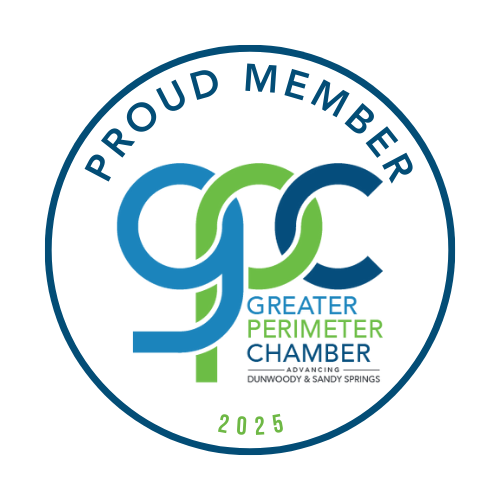- Drug Addiction Treatment
Heroin Treatment in Atlanta, GA
Introduction to Heroin
There are two basic types of drugs, natural and manufactured. Natural drugs are those derived directly from things found naturally occurring, such as certain plants. Manufactured drugs are either wholly synthetic or a combination of natural and artificial materials. Heroin is a manufactured (or synthetic) opioid drug. Heroin is highly addictive and often requires intensive drug treatment to overcome. If you are looking for a heroin rehab center in Georgia, contact Atlanta Recovery Place today.
Your Recovery is Our Priority
Atlanta Recovery Place has caring representatives available 24/7 to help you or your loved one when dealing with substance abuse. Request a 100% confidential callback now to start your journey.
How Does Heroin Affect the Brain?
The effects of heroin on the body are often very rapid. Upon entering the brain, heroin binds to specific opioid receptors in the brain and spinal column. These particular receptors are involved in sensing and transmitting feelings of pain and pleasure. They also control breathing, heart rate, and sleeping patterns. When heroin binds to the brain’s opioid receptors, it changes how the brain produces and releases dopamine and other neurotransmitters.
With ongoing use, the brain is less likely to produce its own neurotransmitters, relying on heroin to create feelings of relaxation and calm. This process has a significant effect on your brain’s reward system. With time, it becomes difficult, if not impossible, to feel happy and pain-free through natural means. Also, once the brain has developed a tolerance to heroin and you try to stop or reduce how much or how often you use, you will experience withdrawal symptoms.
Another effect heroin has on the brain is potential brain damage from oxygen loss. The opioid receptors in the brain are connected to many vital functions, including breathing. Heroin abuse slows your breathing, making it irregular and shallow. This breathing pattern does not allow enough oxygen to enter your bloodstream or your brain. With less oxygen, your brain will reduce the function of other organ systems to ensure the survival of the most important. With time, this can lead to organ damage and, inevitably, brain damage.
How Long Does Heroin Stay in Your System?
The effects of heroin typically last longer than drugs such as cocaine and methamphetamine; however, the half-life (how long it takes for half of the drug to be flushed from your system) is relatively short at only 30 minutes. Some studies suggest the half-life of heroin is even shorter. Like other substances, the actual time your body needs to process heroin depends on several factors, including:
- Age
- Genetics
- Body composition
- Amount of heroin taken
- Quality of the heroin
- Your physical health (specifically your liver and kidneys)
- Your metabolism
Drug tests for heroin look for the presence of the drug in saliva, urine, blood, and hair follicle. In general, tests can no longer detect heroin in the urine after 48 hours. Blood and saliva tests are often inaccurate due to the short half-life of heroin. In some cases, it takes less than six hours for heroin to be undetectable in blood or saliva. The only test capable of detecting heroin beyond one week is the hair follicle test which can detect heroin for up to three months.
Heroin Abuse Statistics
In recent years, heroin use rates in the United States have increased dramatically. Some experts believe rising heroin addiction rates are connected to the efforts by medical providers to reduce the number of opioid prescriptions written in medical care settings. Because the effects of certain prescription pain medications are similar to those of heroin, it is not uncommon for people who can no longer access opioid drugs to turn to heroin to get high. Some surveys refer to opioids as a “gateway drug” to heroin use and abuse.
Various studies indicate that approximately 6% of people who misuse prescription opioids eventually start using heroin. Survey results also suggest up to 80% of those with a heroin addiction first misused prescription opioid drugs. Data from 2018 shows nearly 15,000 people in the United States died from a drug overdose involving heroin. Although heroin overdoses declined between 2017 and today, almost one-third of all overdose deaths in the US still involve heroin.
How to Treat Heroin Addiction
There are several effective treatments for heroin addiction. An effective Georgia heroin addiction treatment programs combine behavioral and pharmacological approaches. Contact Atlanta Recovery Place today to learn more about how our Georgia addiction recovery center can help you overcome heroin addiction issues.
Behavioral therapy
Behavioral therapies for opioid use disorders, including heroin addiction, can be provided in both inpatient and outpatient treatment settings. Examples of effective behavioral therapy models include cognitive-behavioral therapy (CBT) and contingency management therapy. Both therapeutic approaches are notable more effective when combined with medically-assisted treatment approaches. CBT aims to modify behaviors while teaching and reinforcing safer, positive coping tools. Contingency management uses a voucher-based system to encourage ongoing sobriety.
Pharmaceutical interventions (medication-assisted treatment)
Incorporating medications into a treatment program can provide several benefits. Certain medications help reduce the intensity and severity of withdrawal symptoms during the early stages of detox. Medications are also used in MAT or medication-assisted treatment programs to make treatment more effective and increase retention in treatment. Common drugs used in MAT programs include Methadone, Buprenorphine, Suboxone, and Naltrexone.
What We Offer
What to Look for in a Heroin Rehab Center in Atlanta
If you are ready to put heroin addiction in the past, the safest way to detox and take your first steps towards lasting sobriety is to choose a heroin rehab center in Atlanta. When choosing a heroin treatment program, there are a few things you should look for to ensure you find the best program to meet your needs. First, consider the program length.
Most rehab programs offer several different program lengths. It is important to consider the severity of your addiction and other factors, such as whether you have a co-occurring mental or physical health condition that must be addressed as part of your treatment. Choosing a program that provides an adequate level of care is crucial to achieving positive treatment outcomes.
Another consideration is the type of treatment offered. The best heroin rehab centers provide a range of therapy models, including evidence-based treatments and holistic or alternative therapy options. Be sure your chosen program offers a therapeutic model that suits your treatment needs and goals.
Atlanta Recovery Place provides Heroin Addiction Treatment in Atlanta, GA
If you or a loved one live with the challenging symptoms of heroin addiction, don’t wait to seek help. If left untreated, heroin addiction can lead to several physical and psychological health effects. Our experienced, compassionate team of treatment professionals at Atlanta Recovery Place is here to help you begin your journey to recovery. Contact a member of our admissions team today to learn more about our drug addiction treatment in Georgia.
Recover Now.
Atlanta Recovery Place has caring representatives available 24/7 to help you or your loved one when dealing with substance abuse. Request a 100% confidential callback now to start your journey.
What We Offer
Quick Links
Our Contact
- 1-866-433-9220
- info@atlantarecoveryplace.com
-
1742 Mt Vernon Rd #100
Dunwoody, GA 30338 -
Monday – Friday: 8 am – 6 pm
Saturday: 8 am – 3 pm (as needed)
© 2025 Atlanta Recovery Place All rights reserved.

Verify Your Insurance & Get Access To Treatment
You can get insurance coverage in as little as 5 minutes!





